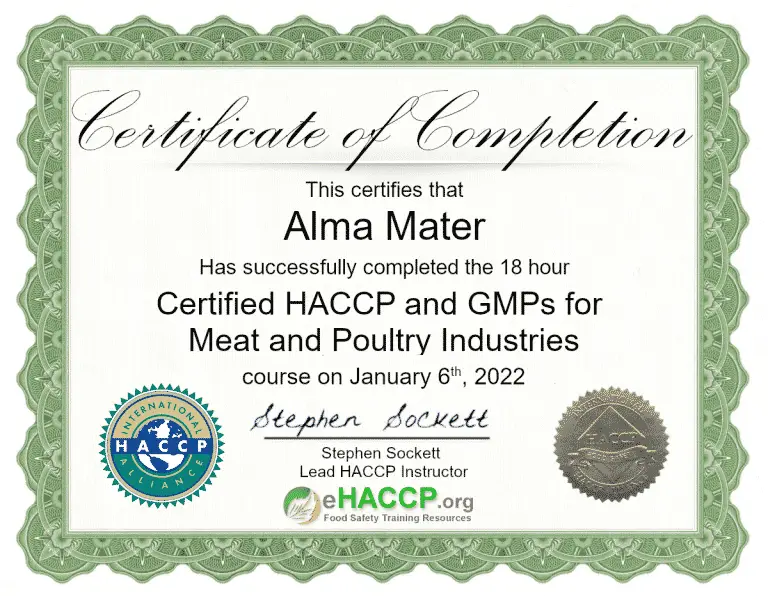There are several steps you can take to obtain a HACCP (Hazard Analysis and Critical Control Points) certificate:
- Familiarize yourself with the HACCP principles: In order to earn a HACCP certificate, you will need to have a strong understanding of the principles and concepts of HACCP. This can be achieved through self-study or by taking a training course.
- Find a training program: There are a number of organizations that offer HACCP training programs, both in-person and online. These programs can vary in length and intensity, so it is important to find one that meets your needs and schedule.
- Complete the training program: Once you have found a training program, you will need to complete it in order to be eligible for a HACCP certificate. This may involve attending lectures, participating in workshops, and completing assignments and exams.
- Pass the certification exam: Upon completion of the training program, you will need to pass a certification exam in order to receive your HACCP certificate. This exam will test your knowledge of the HACCP principles and your ability to apply them in a practical setting.
- Maintain your certification: In order to maintain your HACCP certificate, you may be required to participate in ongoing training and professional development activities. This can help you stay up-to-date on the latest developments in the field and ensure that your skills and knowledge remain current.
Keep in mind that requirements for obtaining a HACCP certificate can vary depending on the organization offering the training and the specific industry in which you will be working. It is important to research the specific requirements and steps involved in obtaining a HACCP certificate before beginning the process.

